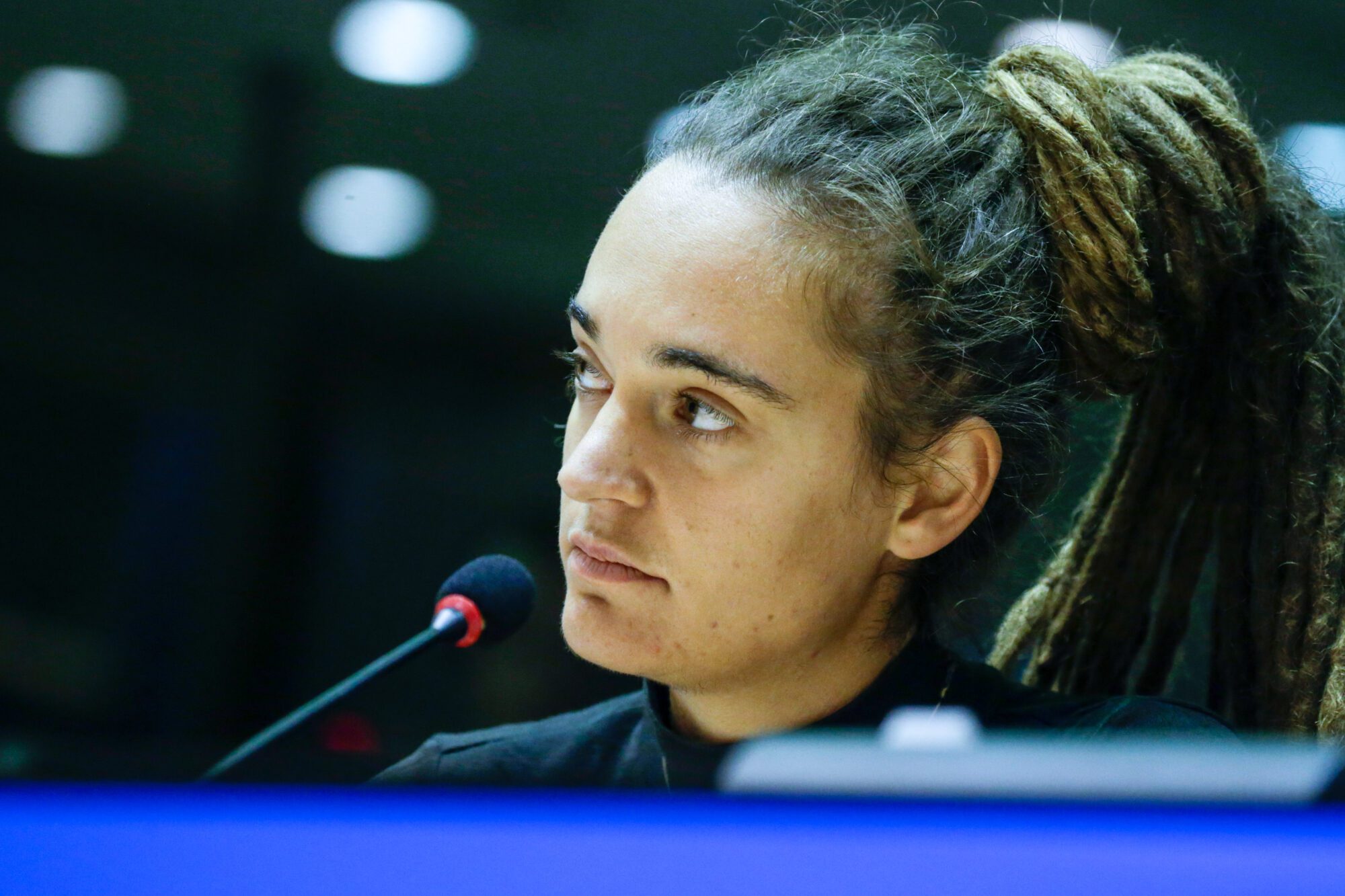
Carola Rackete
Within the German Left Party, opposition is on the rise for radical climate and refugee activist Carola Rackete being put on the party’s ballot for next year’s European elections.
With Carola Rackete’s candidacy—she will be running as an independent—critics fear further tension and division. “We are alienating workers and upsetting all our traditional voters,” Bundestag member for the Left Party Alexander Ulrich, told Der Tagesspiegel on Thursday, August 10th.
Wary of the party’s growing irrelevance, Ulrich continued that “Ms. Rackete thus becomes more of a voter scare and a gift for the [rightist populist] AfD [Alternative for Germany].”
It is “fundamentally wrong” to court former Green voters alone, he said, an implicit reference to Rackete’s strong commitment to environmental matters, perhaps to the exclusion of others which the electorate finds more pressing.
The proposal to put Rackete forward as a candidate shows once again that the Left, “despite years of electoral defeats, does not want to understand why we are considered barely electable by many workers, the socially disadvantaged, or peace movements.”
With radical climate policies and calls for open borders, while neglecting the social issues, “we gain nothing, but continue to lose,” he concluded, noting that “we can not take in all the people who want to come to us.”
Rackete first caught the world’s eye in 2019 for having helmed an NGO ship’s rescue operations. The event was well covered in the press, since the NGO ship unlawfully tried to carry refugees to the island of Lampedusa despite a ban by Italian authorities.
The act—full of derring, since she rammed several Guardia di Finanza patrol vessels in the process—meant her arrest. Eventually, Rackete came off lightly. Soon after, she was released from house arrest following a court ruling.
On her X (formerly Twitter) profile, Rackete bills herself as an ‘Ecologist’ and [member of] ‘Antifa’, a historically German political movement (since exported to the U.S.), which is composed of multiple far-left militant groups describing themselves as anti-fascist.
Last July, when she was first introduced as a top candidate for the European Parliament, she said she wanted to stand up for distributive justice, human rights, a healthy environment, and a “stable climate for Earth.”
Rackette’s nomination immediately sparked criticism within the party. Only last week, former Federal chairman of the party, Klaus Ernst, told Der Tagesspiegel that his party’s choice of Rackete as a top candidate, for which it had bypassed all party bodies, further proved the “political ghost ride” its leadership is on.
Since Sahra Wagenknecht—one of the party’s most prominent leaders—let drop in an interview with Südwest-Presse that she “would be happy” to start a new party “if all the voters who currently no longer feel really represented by any party were soon given a serious political offer again,” there has been much (and expected) unease within the Left Party that she might take many members, as well as voters, with her—a fear exacerbated by the perception that Carola Rackete’s elevation, an outsider, might backfire spectacularly.
Indeed, as a N-TV report outlined, dozens of elected officials in the Left Party had already agreed to join Wagenknecht should she take the plunge, including Klaus Ernst.
A future fragmentation of the Left Party then seems, if not wholly inevitable, highly probable.
